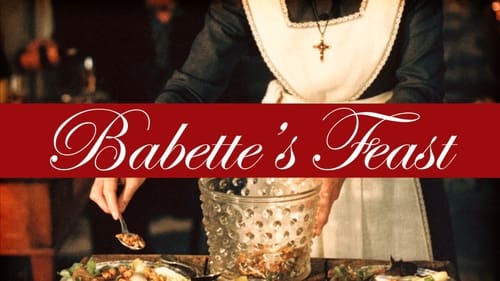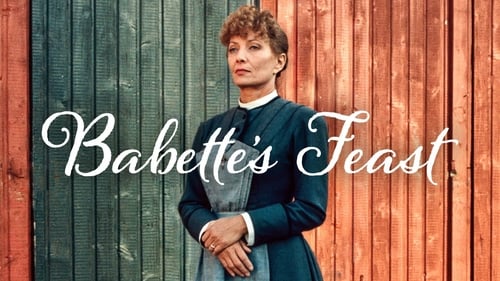Chevy Battaglia
As someone who has read the short story by Isak Dineson along with the movie, I agree with many others that this movie is not simply a "foodie flick," but offers a psychological and religious depth perspective on the life of a woman who's lost everything near and dear to her and how she manages to rise above her grievous losses. The book portrays Babette as a dark, formidable presence in the lives of Martina and Philippa. Axel downplays this aspect, but does maintain it in subtle ways. Axel does go beyond Dineson's portrayal by suggesting Babette is a kind of Christ figure. For more on these themes, a simple online search for critical articles about the movie yields many fine writings (see esp. the Journal of Religion and Film and the Carl Jung page).
padres01
If I had to create a shortlist of my favorite films of all time, "Babette's Feast" would be among them. It is simply sublime. The story, the screenplay, the setting, the actors, their performances -- everything about this film is A-One.This film is a love story to Scandinavia, France, love, friendship, patience and loyalty. But, mostly, it is an homage to really, really good cooking, and how a single meal can transport and transform the human soul.I watched "Babette's Feast" a few weeks ago, and it has really stood the test of time. It's just a beautifully filmed, acted, scripted and staged piece of art.
Jackson Booth-Millard
Featuring in the book 1001 Movies You Must See Before You Die, I knew it was a Danish film I was going to watch no matter what, and it did sound really appealing as I found out more about it. Basically, set in the 19th Century, Denmark, adult sisters Martine (Birgitte Federspiel) and Philippa (Bodil Kjer) are spinsters living with their father, the founder of a strict Christian sect, in an isolated village. They have the opportunity in moments to leave the village and find another good life, but they stay loyal to their father, serving him in his church. Soon enough French refugee Babette Hersant (BAFTA nominated Stéphane Audran) comes knocking at their door begging them to let her stay with them, and serving as their maid, housekeeper and cook to earn her keep. The sisters' father has been dead for some time, and they decide to commemorate the one hundredth year of his birth, and this will see a group of friends invited for dinner, and this gives Babette a great opportunity to prove herself. She implores them to let her prepare the meal that they will eat at this celebration, and they do agree, but secretly they have their concerns for what food she will be serving them, and seeing the preparations of the food worries them as well, such as dead animals being used. They also worry because she is a foreigner that will have different tastes, and while they are Christian she is Catholic, but they let her carry on. It comes to the evening of the feast, and the guests attending are the members of the small church and important gentlemen, including General Lorens Löwenhielm (Jarl Kulle), and they are also relatively unsure what they will think of the food on offer. Babette serves them turtle soup with amontillado (sherry), buckwheat cakes with caviar and sour cream, quail in puff pastry shell with foie gras and truffle sauce, a salad featuring Belgian chicory and walnuts in a vinaigrette, "Les Fromages" featuring blue cheese, papaya, figs, grapes, pineapple, and pomegranate, and rum sponge cake with figs and glacéed fruits, with numerous rare wines. The feast is a tremendous success, and it is only afterwards that Babette reveals that she was in fact the famous former Chef of the Café Anglais, but she presumably stays with the sisters instead of returning to Paris. Also starring Jean-Philippe Lafont as Achille Papin, Gudmar Wivesson as Young Lorens Löwenhielm, Bibi Andersson as Svensk Hofdame, Hanne Stensgaard as Young Filippa and Vibeke Hastrup as Young Martine. The acting is relatively good, and it is an interesting enough story, but I will be honest, the best scenes are of course that the feast, the preparations are good viewing, and the guests enjoying the food served makes for a nice result, as it changes all their lives or whatever, all in all it is an entertaining period drama. It won the Oscar for Best Foreign Language Film, it won the BAFTA for Best Film not in the English Language, and it was nominated for Best Cinematography, Best Direction for Gabriel Axel, Best Adapted Screenplay and Best Film, and it was nominated the Golden Globe for Best Foreign Language Film. Very good!










